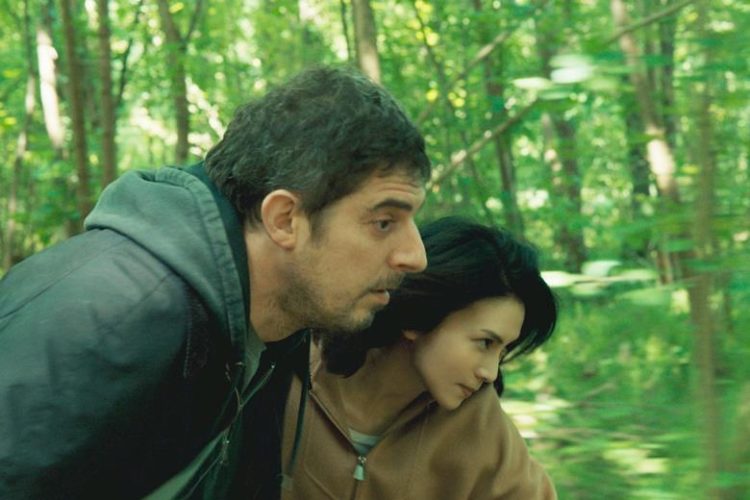
Comprising international premieres, short programs, and some of the country’s finest-ever films in new restorations, 2025’s Japan Cuts––running July 10-20 at New York’s Japan Society––is upon us. As one of North America’s sole festivals devoted to new voices in Japanese cinema, it’s likely your only opportunity to see many titles in a theatrical space. Though one can feel a bit dizzy looking through everything, we’re glad to distill it––from masters (Kiyoshi Kurosawa, Takashi Miike) to nascent talents and, along the way, a few absolute classics given much-deserved restorations.
Blazing Fists (Takashi Miike)
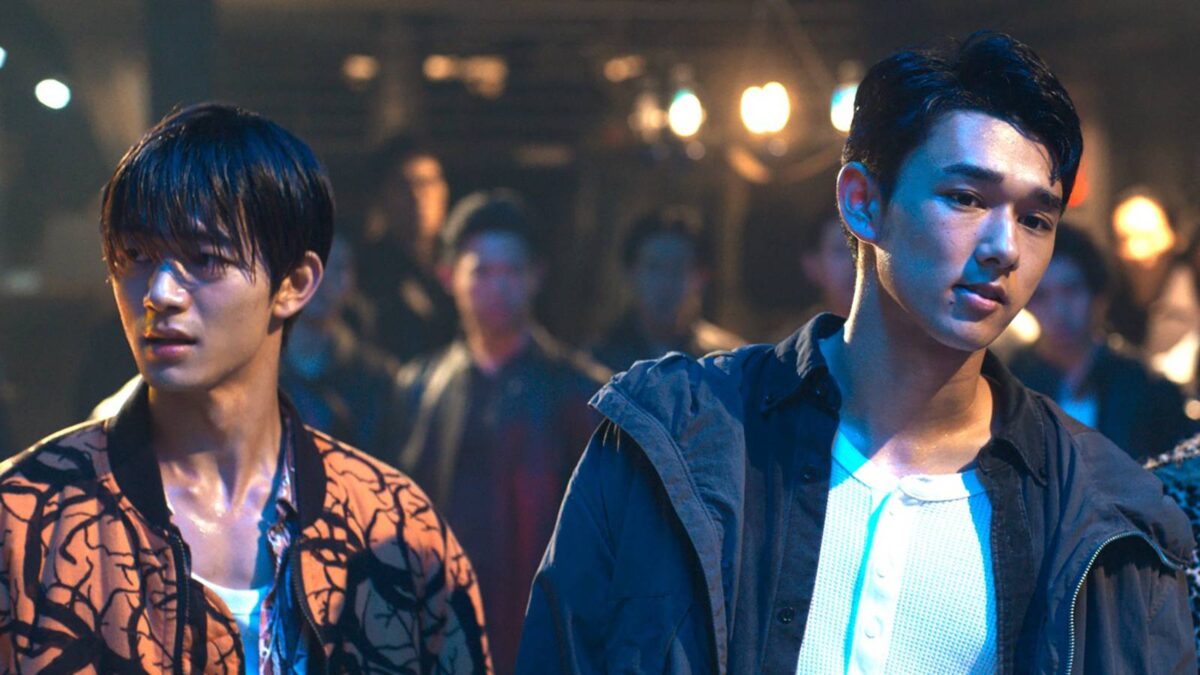
It’s hard to say what’s more endearing about Takashi Miike these days: that the director of Audition and Ichi The Killer is still out there producing work at the same, alarming rate (his last release, a TV movie remake of the long-running series Unfettered Shogun, released four weeks ago) or the clear sense that he’s still enjoying himself. Miike’s one-hundred-and-somethingth film, Blazing Fists, is a story about honor and loyalty that opens on Ikutu (Danhi Kinoshita), a youth punching another through a glass door. We’re in a juvenile detention center, and this showdown will lead Ikutu and the man he’s defending, Ryoma (Kaname Yoshizawa), on the road to becoming best friends. This relationship will continue in the outside world, where a shared dream of competing in a televised UFC style event called Breaking Down awaits. Yagura is the film’s sometimes narrator. He is also, unbeknownst to his new pal, serving time for holding up Ikutu’s dad with a flick knife. If that’s not good, honest pulp, I’m not sure what is. – Rory O. (full review)
Four Films by Kiyoshi Kurosawa
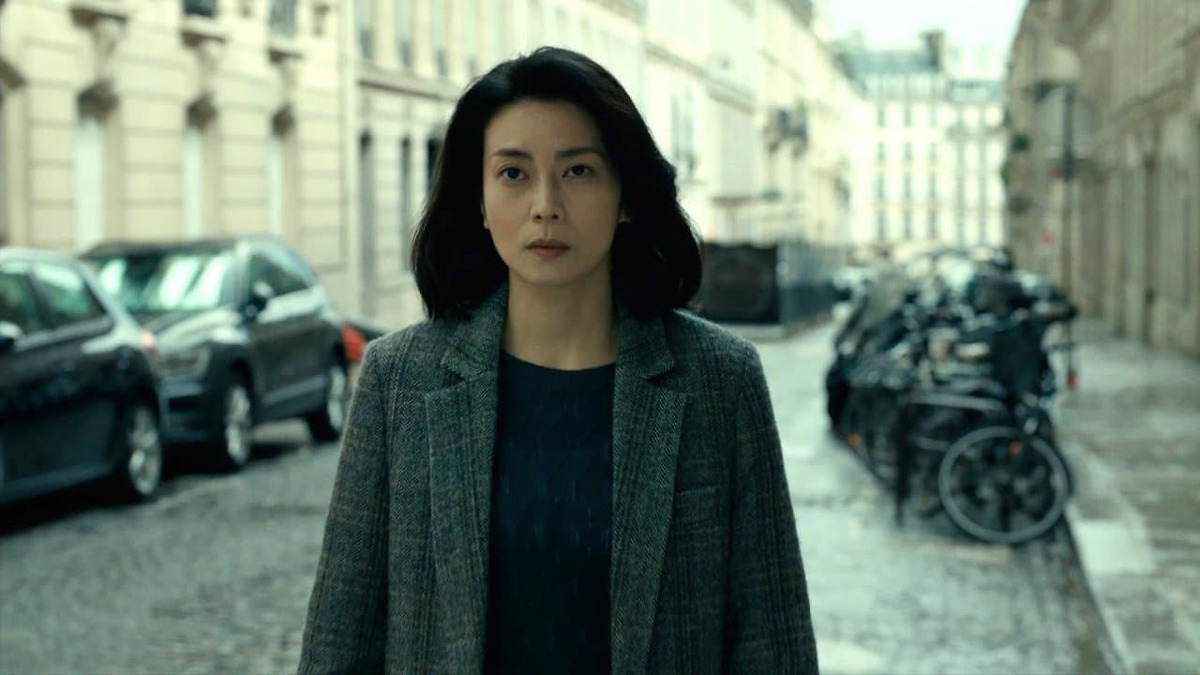
Kiyoshi Kurosawa has never been a slow worker––a two-year period with fewer than two films could fire off worries that Japan’s finest filmmaker is settling down––but even by such standards has this been a verdant time. With Cloud set for a July 18 release, Japan Cuts will present Kurosawa’s action thriller in its New York premiere, while the even-better, still-undistributed Serpent’s Path makes an overdue appearance. Japan Cuts’ Classics section features a Janus-owned restoration of the original Serpent––one of Kurosawa’s best works, and as much a creative partner to the 2024 film as its predecessor––alongside his slow-burn character piece License to Live, which shows on a 35mm print so profoundly rare I would’ve assumed it simply does not exist. – Nick N.
A Girl Named Ann (Yu Irie)

A Girl Named Ann is––like many other films centering on child abuse, drugs, addiction, and poverty––well-intentioned. It also tends to stray, during too many overdramatized moments, into the territory of Tracy Morgan’s 30 Rock parody film Hard to Watch. There are several overfamiliar beats in the life of Ann, a young girl pimped-out by her own mother to feed her addiction, where the movie tends to milk sympathy in ways that feel both unfair to her character and cheap in their plotting––one particular moment comes to mind when Ann’s mom comes to the care facility and tries to fight the staff to kidnap her daughter back. There is an interesting sideplot to the film of Ann’s two guardians––one a journalist, the other a hardboiled detective––are scheming against each other, but this is very half-baked and feels awkwardly forced in and resolved quickly. There are threads of a genuinely heartbreaking film in here that get lost in its need to churn out a good story with twists and sensational misery. – Soham G.
Love Letter (Shunji Iwai)
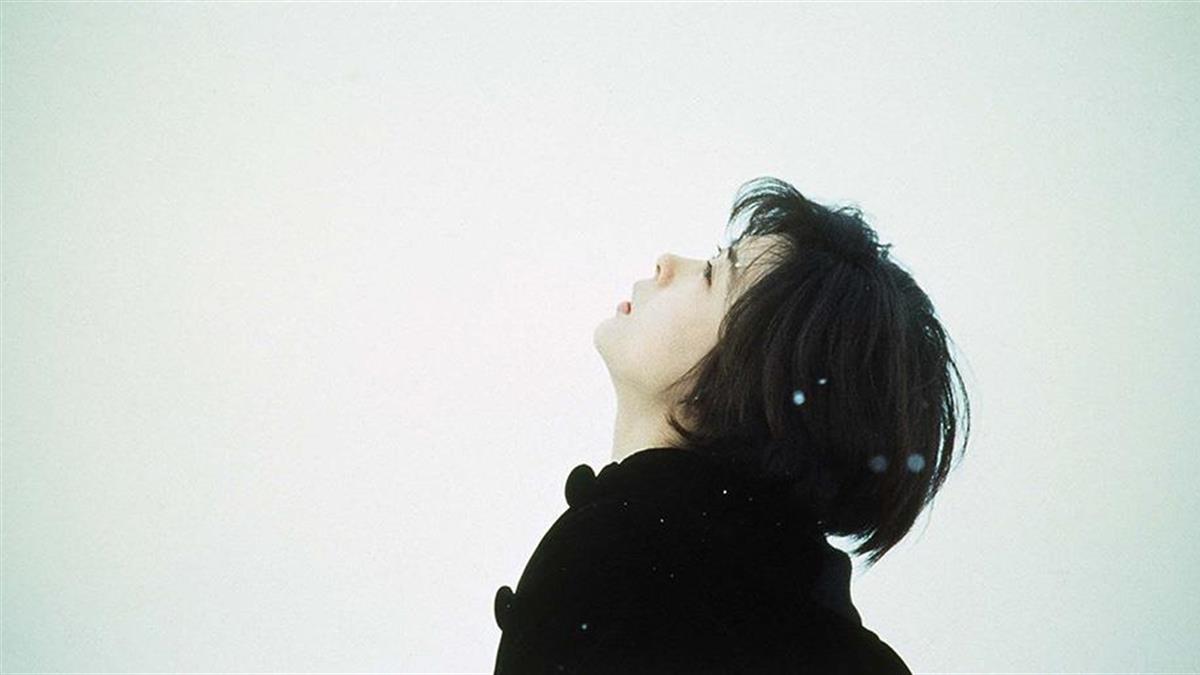
Shunji Iwai’s ethereal white lighting and a cast of soft-spoken, congenial characters who wistfully recall tragedies in their lives makes his debut feature Love Letter feel like a warm embrace. It’s an experience that toes the line between pain and consolation, which Miho Nakayama showcases perfectly in her double role as Hiroko and Itsuki, anonymous pen-pals with a mysterious common past. Here characters face tragedy in the death of a loved one, but Nakayama’s ability to clearly define the different kinds of grief and reconciliation required between love of a husband and love of an acquaintance makes Iwai’s film a rare nuanced portrait of human connection. Its easy-to-follow narrative, unconventional for the filmmaker who quickly adapted to bold experimental camerawork and structure in the 21st century, should not be mistaken for lack of depth. Love Letter is an accessibly warm, endearing debut. – Soham G.
A Samurai in Time (Jun’ichi Yasuda)
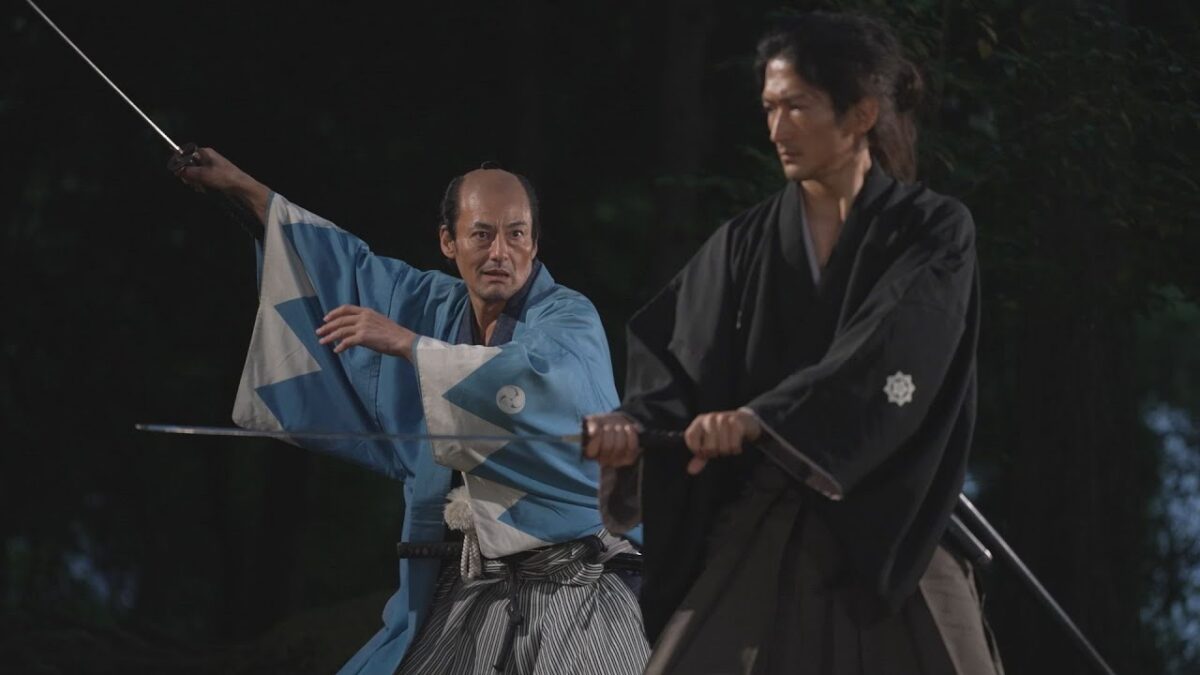
A film like A Samurai in Time, about a samurai who inexplicably time-travels to modern Japan after being struck by lightning, could easily wear out its joke in the first 30 minutes. But Makiya Yamaguchi’s spectacularly passionate and believable performance as Kosaka Shinzaemon, a vaunted warrior of the Aizu clan from pre-Meiji era Japan, turns A Samurai in Time’s preposterous premise into something comedically charming and an insightful meta-commentary on the state of “jidaigeki” cinema and legacy of samurai culture in the nation. The low-budget restrictions are evident––most of this film is shot like a stage play with little sense of scope––but director Jun’ichi Yasuda plays to Yamaguchi’s strengths, allowing the camera to focus on his exaggerations in both comedy and tragedy acting. His performances immediately harken the viewer back to jidaigeki film legends like Tetsuya Nakadai in his grunting and scowling. A surprisingly warm movie for those who love samurai films and want more. – Soham G.
See You Tomorrow (Saki Michimoto)
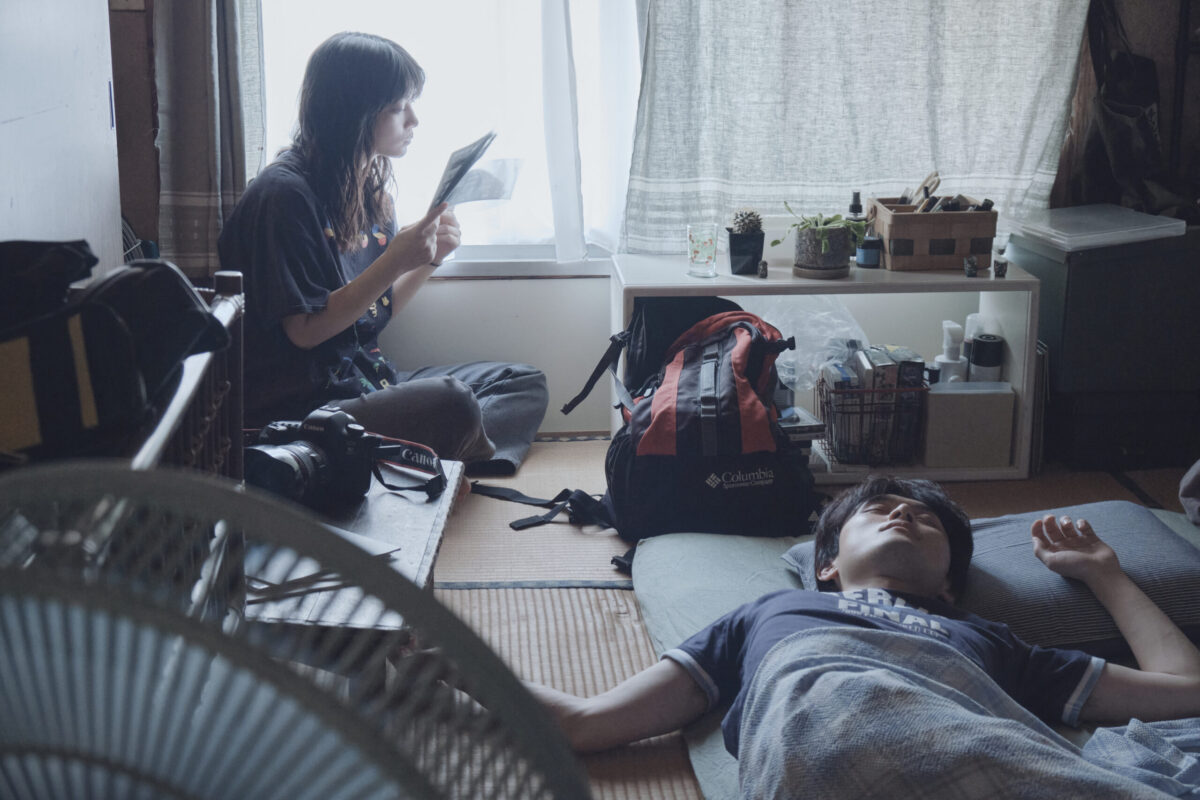
A festival like Japan Cuts has both the privilege and, dare I say, duty to surprise us with talent that might otherwise never escape its native country. A rather strong example would be found in 27-year-old Saki Michimoto, who made her feature debut with See You Tomorrow. The crossroads faced by everyday youth are nothing new in Japanese cinema, but Michimoto always finds the most intelligent compositions and intuitive psychological framing for her small ensemble, down to a coda that understands how a small passage of time reorients the world for a young person. – Nick N.
Teki Cometh (Daihachi Yoshida)
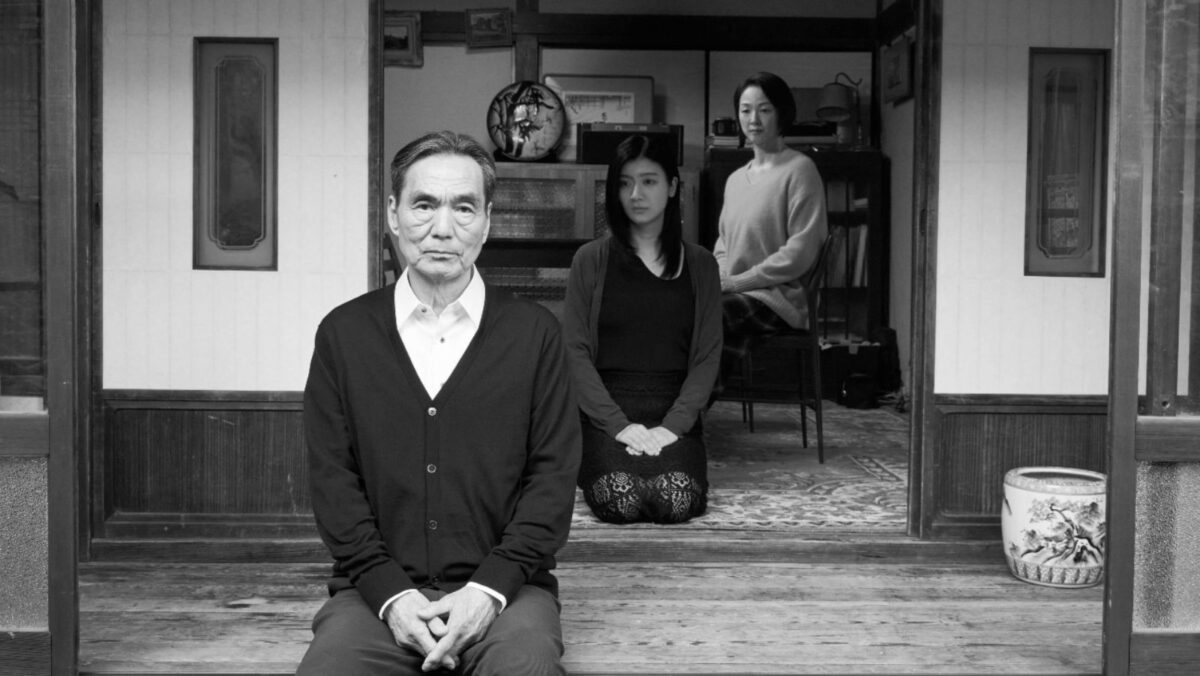
With respect to all else I saw from the Tokyo International Film Festival’s well-rounded line-up, Teki Cometh marks an easy choice for top feature. About 45 minutes pass before its inciting incident-of-sorts––a widowed, financially strained professor receives an unsigned email warning that “the enemy” is coming––prior to which is the pristine, miserable bric-a-brac assembly of its protagonist’s dull life, and from which grows mass degeneration: of logic (this has so many dream sequences that reality or fantasy become indistinguishable from shot to shot), of heretofore rigid form, of emotional comportment. A film convincing at either end and, like all my favorites, larger on the inside than it appears from the out. No matter that Yoshida is among the longest-active directors on this list––Teki Cometh was Tokyo’s true discovery. Any U.S. distributor seeking a sleeper hit should take note. – Nick N.
Japan Cuts 2025 runs from July 10-20 at NYC’s Japan Society.
The post 10 Films to See at Japan Cuts 2025 first appeared on The Film Stage.
from The Film Stage https://ift.tt/WyRLwot

0 Comments